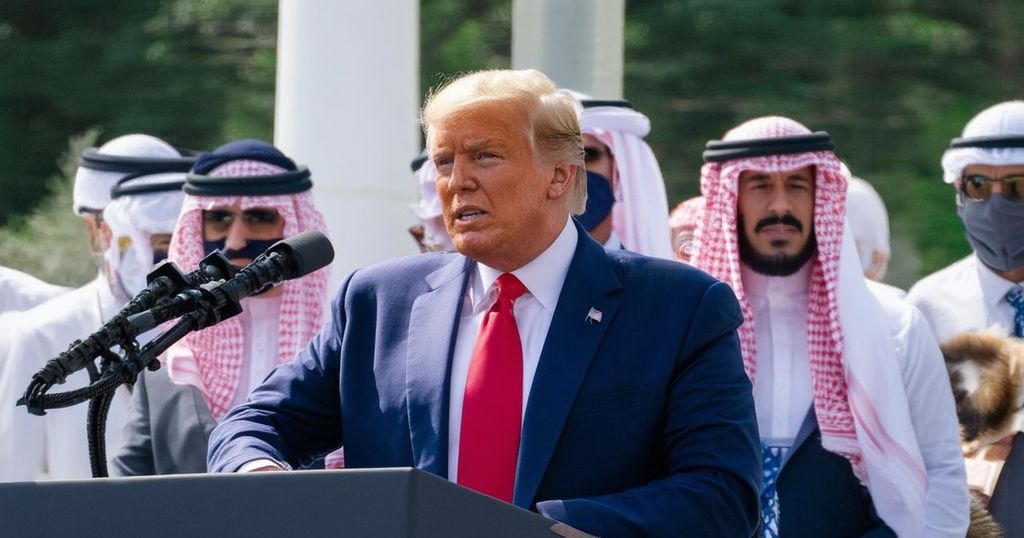As the 2024 U.S. presidential election nears, Saudi Arabia and the UAE are likely to favor Donald Trump’s return to power, perceiving him as a catalyst for bolstering their regional ambitions and securing favorable U.S. support. The contrasting foreign policy anticipated from Vice President Kamala Harris, particularly regarding Iran and ongoing regional conflicts, raises concerns for the Gulf States, potentially diminishing their strategic interests and aspirations.
The Gulf States, particularly Saudi Arabia and the United Arab Emirates (UAE), appear to be positioning themselves in favor of former President Donald Trump returning to the White House as the 2024 U.S. presidential election approaches. Amidst conflict in the region, notably Israel’s ongoing war with Hamas in Gaza, the Gulf nations find themselves in a precarious environment, prompting them to seek stability that aligns with their geopolitical aspirations. Vice President Kamala Harris, the Democratic nominee, is likely to adopt a tougher foreign policy approach, particularly regarding conflicts in Sudan and Yemen, and pursue diplomatic engagement with Iran. Her strategic inclinations diverge from the Gulf states’ interests, making a Trump presidency more appealing to them. During Trump’s prior administration, the Gulf States benefited significantly from U.S. support, including extensive arms deals and aggressive stances against Iran. In contrast, Harris’s potential presidency may signal a return to diplomatic frameworks established during former President Barack Obama, particularly regarding negotiations surrounding Iran’s nuclear program. Such a shift could raise concerns among Gulf nations, especially as they perceive Iran as a key threat to their security. Furthermore, the Gulf States hope to leverage a return of Trump to fortify their military capabilities and align closely with U.S. foreign policy that favors their interests, such as creating a security pact and enhancing military cooperation, particularly with Saudi Arabia. Trump’s previous administration facilitated extensive arms deals with the kingdom, which significantly enhanced its military capabilities, contrasting sharply with the Biden administration’s scrutiny over arms sales amid concerns over human rights violations and regional conflicts. While both nations aim to advance their strategic goals under Trump’s leadership, there remains an inherent competition between Saudi Arabia and the UAE that could intensify if one nation secures a closer alignment with Washington. The U.S. elections create uncertainties and potential shifts in the balance of power within the Middle East, particularly in response to various regional conflicts and negotiations, such as the complex situation surrounding Israel and Gaza.
The Gulf States, especially Saudi Arabia and the UAE, are key players in the Middle Eastern geopolitical landscape. As the region navigates ongoing conflicts, including the war in Gaza and its implications, U.S. foreign policy remains a critical factor influencing the ambitions of these nations. Former President Trump’s previous administration was marked by strong support for Gulf interests, in contrast to the more diplomatic and cautious approach anticipated under Vice President Kamala Harris. The dynamics of U.S. relations with Iran and regional security considerations are pivotal themes in understanding the Gulf’s strategic calculations as they assess their preferences for the upcoming U.S. presidency.
In conclusion, the Gulf States are likely to favor the return of Donald Trump to the presidency, perceiving it as an opportunity to enhance their regional ambitions and secure U.S. support that aligns with their strategic interests. The impending election presents critical implications for U.S.-Gulf relations, determined by the differing foreign policy approaches of the candidates. The potential shifts in U.S. engagement could reshape the balance of power in the Middle East, as these nations strive to navigate their complex geopolitical landscape amidst evolving conflicts.
Original Source: foreignpolicy.com






